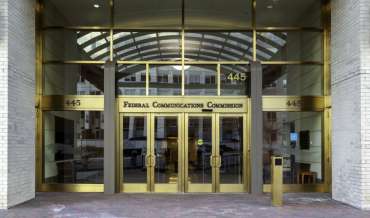May 2023 was a busy news month for telemarketing compliance and deliverability. Florida passed significant amendments to the Florida Telephone Solicitation Act (FTSA), Maryland and New Jersey passed new telemarketing laws, and the Federal Communications Commission (FCC) shut down a global gateway provider. In fact, so much happened that we were unable to find the space to cover some other significant news. So, we’ve gathered all of those important, under-the-radar stories into this grab bag.
FCC Proposes That Opt-Outs Be Honored Within 24 Hours
In February, the FCC published their Notice of Proposed Rulemaking (NPRM) on lead generation that has been the source of much consternation. On May 18, they published another NPRM on revocation of consent that could also be significant.
The headline grabbing proposal in the NPRM is one that would officially shorten the time in which callers must implement opt-out requests from 30 days to 24 hours. This would be a significant escalation if enacted. Other changes are less severe, such as formally adopting standards that courts have long held such as allowing opt-outs by any reasonable method.
One potential boon for callers would be rules precluding callers from using tricks to manufacture lawsuits such as opting out by sending a request to an obscure fax number. Another would be one formally codifying that callers can send one final confirmation text message in response to an opt-out.
The FCC is taking comments on these proposed rule changes.
President Biden Nominates Anna Gomez to Be Fifth FCC Commissioner
President Joe Biden has spent nearly his entire term without a majority on the FCC. The reasons for this are complex and generally tied to politics surrounding internet service and broadcast media. But with Gigi Sohn finally withdrawing her doomed nomination as a commissioner, Biden has again made an attempt to fully staff the FCC by nominating Anna Gomez as the fifth commissioner. Gomez has a long career working as an attorney for the FCC and other government agencies. She seems likely to be a less controversial nominee than Sohn but it’s possible that the nearly evenly divided Senate will still be a forum for obstruction due in part to the presidential election looming next year.
Anti-Robocall Litigation Task Force Files Lawsuit Against VoIP Provider
Cooperation between attorneys general across state lines and with federal regulators has increased in recent years. Last August, the attorneys general of all 50 states and Washington D.C. announced the creation of an Anti-Robocall Task Force "to investigate and take legal action against the telecommunications companies responsible for bringing a majority of foreign robocalls into the United States." At the end of May, this task force filed suit against VoIP provider Avid Telecom.
The lawsuit alleges that Avid helped facilitate billions of illegal robocalls over a period of five years. The task force alleges that these robocalls included false and misleading statements, misrepresentations, calls to numbers on the Do Not Call (DNC) list, spoofing violations, and other illegal content. Avid received more than 300 notices from the Industry Traceback Group (ITG) alerting them to these potential violations. Avid apparently ignored these notices and is now facing the combined fury of the nation’s top state-level law enforcement officials.
$750,000+ TCPA Settlement for Wrong Number Class Action
Despite the existence of the Reassigned Numbers Database (RND) and numerous other right party solutions, some callers continue to find themselves committing Telephone Consumer Protection Act (TCPA) violations due to wrong number calls. In Fralish v. Ceteris, the defendant agreed to pay $761,850 for wrong number calls. Since the class action stems from 8,645 alleged violations, the payout could have easily exceeded $4,000,000. While other threats from state laws, regulators, and call deliverability challenges are increasing, callers still must be aware of the risks of TCPA litigation.





